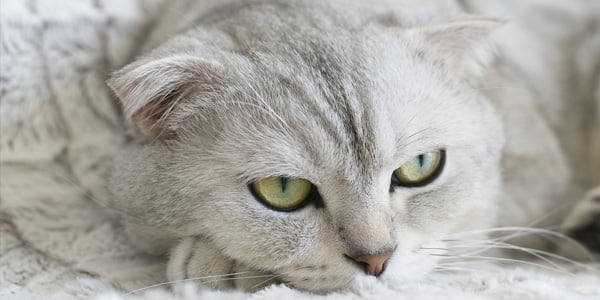Feline infectious peritonitis (FIP) is a viral disease of cats caused by certain strains of a virus called the feline coronavirus. Most strains of feline coronavirus are found in the gastrointestinal tract and do not cause significant disease. These are referred to as feline enteric coronavirus (FeCV). Cats infected with FeCV usually do not show any symptoms during the initial viral infection, but may occasionally experience brief bouts of diarrhea and/or mild upper respiratory signs from which they recover spontaneously. FeCV-infected cats usually mount an immune response through which antibodies against the virus are produced within 7-10 days of infection.
In approximately 10 percent of cats infected with FeCV, one or more mutations of the virus can alter its biological behavior, resulting in white blood cells becoming infected with virus and spreading it throughout the cat’s body. When this occurs, the virus is referred to as the FIPV. An intense inflammatory reaction to FIPV occurs around vessels in the tissues where these infected cells locate, often in the abdomen, kidney, or brain. It is this interaction between the body’s own immune system and the virus that is responsible for the development of FIP.
Unfortunately, there is no specific cure for FIP. Although recovery from signs has been reported, it is uncommon. Up to 95% of cats with FIP will die from the disease. However, some supportive measures, including draining excessive fluid build-ups, can provide temporary relief. A variety of medications designed to reduce the abnormal immune response to the virus or reduce the ability of the virus to reproduce have been tried.
Can cats with feline infectious peritonitis be cured?

